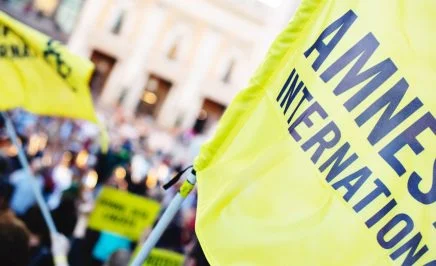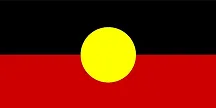As discriminatory legislation that could be used to ban Pride marches in Hungary comes into effect today, Amnesty International has announced the launch of an international campaign calling on the Hungarian authorities to “Let Pride March”.
The campaign, launched tomorrow in the run up to the 30th anniversary of Budapest Pride, is calling on the city’s chief of police to enable people to take part in Pride safely, free from intimidation, harassment or violence. It is also encouraging people around the world to show support and solidarity with LGBTI people and their allies in Hungary.
“For the last 30 years, people in Hungary have marched through the streets of Budapest to celebrate Pride and demand equality and dignity for LGBTI people. In June, Budapest Pride will take place, and we will be marching alongside all those who oppose discrimination and the rollback of freedom of expression and peaceful assembly,” said Dávid Vig, Director of Amnesty International Hungary.
“The recent anti-Pride law is the latest measure targeting and stigmatizing LGBTI individuals and groups and attempting to strip away the hard-won rights of LGBTI people. Large numbers are expected to peacefully take to the streets, and they must be permitted to march safely.”
Dávid Vig, Director of Amnesty International Hungary
Under the terms of the new anti-Pride law which was rushed through parliament in March in an expedited procedure without consultation – it is ‘forbidden to hold an assembly in violation’ of 2021 legislation banning the ‘depiction and promotion’ of homosexuality and diverse gender identities to people under 18. Under the law, the authorities have the power to use facial recognition technology to identify participants and to fine those who participate in any prohibited assembly. According to the Criminal Code, organizers of an assembly which is banned risk criminal charges and up to one year imprisonment.
The new law also widens the conditions under which the police may disperse a notified assembly. An unlawful dispersal of Pride participants could create unrest, tensions and possible escalation of violence. Amnesty International is calling on the police to respect, protect and facilitate people’s right to protest as required by their obligations under international law.
The adoption of this new law was made possible by yesterday’s vote in the Hungarian Parliament passing an amendment. The vote provides a constitutional basis for denying the gender identities of some people in Hungary and which allows the authorities to curtail rights, in particular those of LGBTI people, in the name of protecting children.
“It is vital that the Hungarian authorities do not impose undue restrictions or a pre-emptive ban on Budapest Pride.”
“It is vital that the Hungarian authorities do not impose undue restrictions or a pre-emptive ban on Budapest Pride. Instead, the march should go ahead unhindered and the response of the police, who have operational responsibility, should be fully human rights compliant,” said Catrinel Motoc, Amnesty International’s Senior Campaigner on the Right to Protest.
“As people around the world celebrate Pride, we invite them to join our campaign demanding Hungarian authorities #LetPrideMarch and end the use of legislation based on harmful stereotypes, discrimination, homophobia and transphobia. Protest is a human right, and we must support the brave protesters of Budapest Pride.”
Background
Budapest Pride is scheduled for 28 June and the #LetPrideMarch campaign launches tomorrow and will go live here at 00:01 GMT.
The new anti-Pride law modifies the Act on the Right of Assembly, the Act on Petty Offences and the Act on Facial Image Analysis making it a crime to organize and a petty offence to attend assemblies that violate Hungary’s Propaganda Law, which prohibits the “depiction or promotion” of homosexuality and diverse gender identities to under-18s. A fine of up to 200,000 HUF (500 EUR) may be applied for people who attend Pride, if banned.
The legislation has sparked protests in Hungary that have gone on for more than a month.
In a report published in July 2024, Amnesty International documented an array of trends and patterns of restrictions and violations to the right to protest in 21 countries, including Hungary.
Hungary is among the countries flouting its international and regional human rights obligations to respect, protect and facilitate peaceful assemblies, to remove obstacles and to avoid unwarranted interferences with people’s right to freedom of peaceful assembly and expression.
Amnesty International is a global movement of more than 10 million people who take injustice personally. We are campaigning for a world where human rights are enjoyed by all – and we can only do it with your support.
Act now or learn more about our human rights work.








